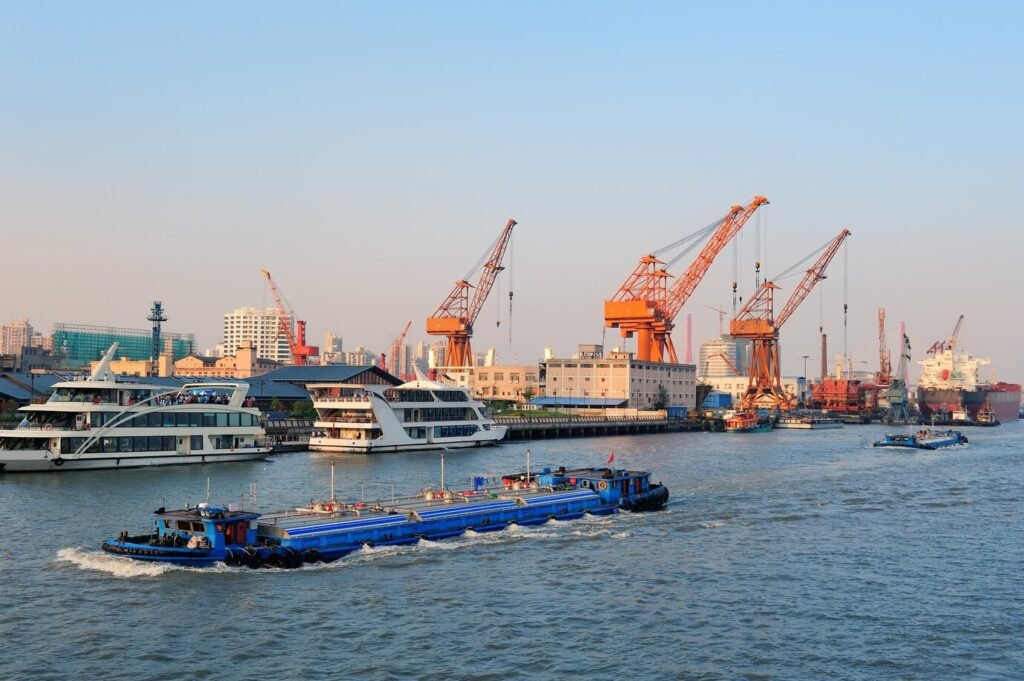Freight Forwarding Services
SOLAS weighing & Filing
SOLAS - CONTAINER WEIGHT VERIFICATION
The International Maritime Organization (IMO) amended the Safety of Life at Sea (SOLAS) Convention on July 1, 2016, introducing mandatory weight verification requirements for containerized maritime shipping. These amendments ensure safety for vessels and terminal operators worldwide.
Under the SOLAS regulations, shippers must provide a Verified Gross Mass (VGM) certificate, which includes the container’s weight and its contents. This certificate must be submitted to the carrier before loading to facilitate proper vessel preparation. Without a verified weight, containers cannot be loaded onto the vessel.
What is SOLAS?
The Safety of Life at Sea (SOLAS) treaty, first introduced in 1914 after the Titanic tragedy, sets international maritime safety standards for ship construction, equipment, and operation. The recent VGM requirement further enhances maritime safety by ensuring accurate container weight verification before shipping.
Mobilelogistic VGM WEIGHT CERTIFICATES
Mobilelogistix has created a weight certificate for submitting VGM information for full-container-load (FCL) cargo and a separate weight certificate for less-than-container-load (LCL) cargo.
For FCL shipments, the certificate must provide:
- Booking number
- Date of verification
- VGM per container (cargo weight, loading material/pallets/skids, dunnage, securing material, tare weight of container)
- Method of obtaining the VGM (Method 1 or Method 2)
- Signature (name in capital letters for EDI) of person authorized by shipper and company details
- Additional information and/or documents, if any as required by relevant state (government) authorities.
For LCL shipments, a certificate is not required. It is assumed that the weight of any given LCL shipment, as submitted to Mobilelogistix by you/on your behalf, is true and accurate.Unless specifically requested, LCL cargo will not be weighed at the CFS.
Upon completion of the consolidation, in case the VGM exceeds the maximum payload of the container, all relevant reloading and weighing costs of the individual shipments and transport costs will be charged to the party or parties who have mis-declared the weight.
For the sake of due diligence, Mobilelogistix will conduct spot checks on individual shipments upon receipt at CFS (Container Freight Station).
NOTE: For LCL shipments, a certificate is not required.
We assume that the weight of any given LCL shipment, as submitted to us by you/on your behalf, is true and accurate.
Unless specifically requested, LCL cargo will not be weighed at the CFS.
Upon completion of the consolidation, In case the VGM exceeds the maximum payload of the container, all relevant reloading and weighing costs of the individual shipments and transport costs will be charged to the party or parties who have mis-declared the weight
For the sake of due diligence, we will be performing spot checks on individual shipments upon receipt at our CFS’.
Mobilelogistix is working closely with our partner carriers and e-commerce partners in order to have efficient and reliable global communication standards and processes in place.
Mobilelogistix Worldwide takes safety and compliance with all relevant regulations very seriously and we rely on you to assist us in this process.

FREQUENTLY ASKED QUESTIONS
WHO IS RESPONSIBLE FOR PROVIDING THE VERIFIED GROSS MASS (VGM)?
The Shipper (named on the ocean bill of lading or sea waybill) is the party responsible for providing the ocean carrier and/or the terminal operator with the VGM of a packed container. Shipping lines and Mobilelogistix Forwarding are not responsible for verifying this information. A shipper can authorize a third party to provide the VGM on their behalf. The VGM will not show on the Bill of Lading. It is declared separately from the gross cargo weight entered in the Bill of Lading.
WHAT ARE THE ISSUES AND PENALTIES IF VGM IS MISSING?
SOLAS imposes an obligation on the carrier and the terminal operator not to load a packed container aboard a ship without VGM for that container. Compliance with this obligation by the carrier and terminal operator may result in commercial and operational penalties, such as delayed shipment and additional costs if the shipper has not provided the VGM. The penalties may involve repacking costs, administration fees for amending documents, demurrage charges, delayed or cancelled shipments etc.
IS THERE A DEADLINE FOR PROVIDING THE VGM?
The VGM is required in order to prepare the stowage plan of the ship prior to loading. And without exception, it always remains in the responsibility of the shipper that the carrier and terminal operator receive the information in reasonable time. The VGM cut off will be provided on the booking confirmation.In order to ensure your containers will be loaded, VGM must be submitted towards Mobilelogistix prior to the VGM cut off on the booking confirmation.
HOW TO DETERMINE THE VGM?
There are two methods of verifying the gross mass of a container carrying cargo.
Method 1: Weighing
- After a container has been completely packed, the container can be weighed.
- CalculatingAll packages and cargo items may be weighed individually, including dunnage, packing and securing material and added to tare of the container.
mobilelogistix




Contact Us
Let us know your questions, comments, or suggestions.
Note: fields marked with an asterisk are required
